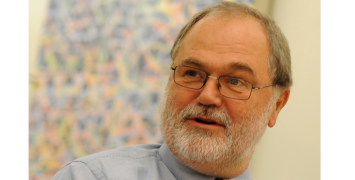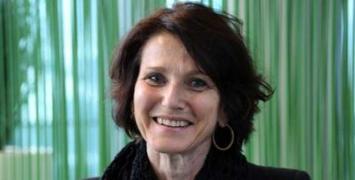From rebellious teenagers to ERC Scientific Council VP

Incoming Vice President of the ERC Scientific Council, Professor Eveline Crone, known internationally for her research on risky adolescent behaviour, tells us more about her research and her motivation to work with the ERC.
Can you tell us more about your fascinating research into teens’ minds?
Every generation bemoans the defiant youth of their day, in fact archives show that this dates back over 2,000 years to Greek philosophers. I have always been fascinated by what happens to the brain between childhood and adolescence - a field that was largely neglected in comparison to studies on childrens’ early days.
In just 30 years, neuroimaging has brought about a revolution in the study of the adolescent mind. Brain research through the use of MRI and fMRI is helping psychologists gain a deeper understanding of how the adolescent brain develops. We now know that the brain regions determining emotions develop more quickly than those that control rational decision-making - explaining heightened sensitivities and risky behaviour in teens.

Yet, only 10-15% of these adolescents get into trouble. My hypothesis is exploring the ‘environment predictor’ - that those more sensitive to their environment in some circumstances develop negative types of risk taking, but take more positive risks, including risks to help others, in other environments. I am also looking at whether difficult to change anti-social behaviour can be influenced positively by perspective-taking training

You recently stated that you would like to put your Spinoza Prize into further research on social media usage in young adults
"I like to look at the opportunities that this transformative phase of life offers and to see how teens can be helped and encouraged to be creative and come forward with their great ideas
Every generation has its own challenges and adolescents today spend a lot of time plugged-in to digital devices. Media tends to focus on the negative implications of this ‘digital revolution’ such as bullying and the impact on self-esteem but we are also seeing positive developments. Quick access to information is allowing adolescents to voice their concerns, which we see, for example, in the global climate marches taking place and those mobilizing against gun laws in the US
What motivates you to work with the ERC?
Every time I get off the train in Brussels, I feel inspired knowing that at the ERC I am working with brilliant researchers for the European good and its future.
I really believe in the bottom-up nature of the ERC where scientists approach problems from the vantage point of future generations
When I was 5 years old, IBM had just developed the engineering prototype for the world's first personal computer. I am benefiting from this research today. I’d like to think that ERC-funded breakthroughs will benefit the next generation, including my own children.
Can you mention some of the challenges facing the ERC?
I think the biggest disappointment that all the Scientific Council Members feel is not being able to fund all the excellent ideas that are proposed to the ERC every year. Since the start of Horizon 2020 between 350 to 630 projects rated excellent by ERC panels could not be funded because of insufficient funds. Currently, the ERC funds approx. 12% of the proposals it receives. This is in stark contrast, for example, to the 17-20% success rate of proposals to the US National Science Foundation. Even a slight increase could help go towards funding many of these top proposals, which is why we are calling to scale up the ambition for funding research and innovation in the EU’s Horizon Europe programme.
What are your hopes for the ERC in the future?
One incredible resource for the ERC, that I believe has not yet been fully tapped into, is its grantees. ERC funded researchers are “on the ground” in many countries and ready to advocate for the ERC and for fundamental research. The Scientific Council was pleased to see that a group of grantees has taken the initiative to create an “Association of ERC Grantees”. I’m sure that this Association will be an important partner in terms of networking with present and past ERC Grantees.
Overall, the ERC really is a European success story. In just 12 years, the ERC has been able to establish a global brand for high quality research. Europe needs to increase its overall investment in research and innovation to help tackle some of the biggest societal challenges facing European citizens. The five major European research and innovation missions in the Horizon Europe programme will address some of these challenges. It will be important for the ERC to show citizens what research and innovation can do to address them.
But more generally, we have an obligation towards future generations to look at problems differently and to continue to invest in curiosity driven research that will ultimately lead to unexpected, significant breakthroughs.





